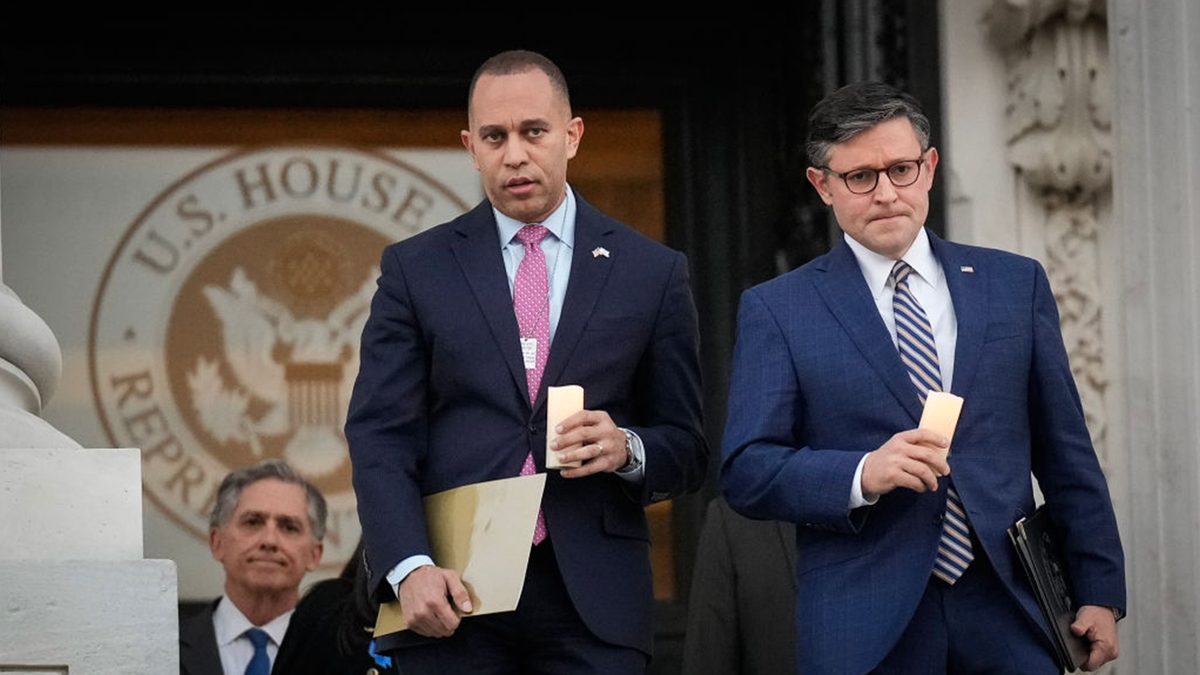A federal judge has ordered the Trump administration to reinstate millions in paused foreign aid. It is the latest in a string of cases in which activists have won preliminary injunctions blocking almost every major Trump administration reform.
These are pre-trial injunctions, meaning the blocked reforms may ultimately be upheld, just as the Supreme Court upheld the travel ban over a year after it was halted just weeks into President Donald Trump’s first term.
But the judges issuing these injunctions are themselves breaking the law by failing to require the plaintiffs to post injunction bonds in case they ultimately lose.
Federal district courts are governed by a set of rules proposed by the Supreme Court and ratified by Congress. They have the full force of law. Rule 65(c) permits courts to issue preliminary injunctions ‘only if’ the plaintiff posts bond in an amount that ‘the court considers proper to pay the costs and damages sustained by any party found to have been wrongfully enjoined.’ The rule is designed both to make the defendant whole and to deter frivolous claims. As Justice Stevens explained, the bond is the plaintiff’s ‘warranty that the law will uphold the issuance of the injunction.’
The language of the injunction bond requirement is mandatory and that is how it was enforced for 40 years. Then, as liberal activists adopted litigation as a policy weapon, these bonds ‘which may involve very large sums of money,’ emerged as a major ‘obstacle’ to their agenda. Sympathetic judges came to the rescue by declaring injunction bonds discretionary.
The pivot began with just two sentences in a Sixth Circuit opinion. The court reasoned that the rule’s directive to set the amount of the bond at ‘such sum as the court deems proper’ allows the trial judge to dispense with the bond altogether.
The problem is that this is not what 65(c) says. The court deceptively edited the rule’s text by truncating the end which directs judges to choose an amount proper to pay a wrongfully enjoined defendant’s ‘costs and damages.’ University of North Carolina law Prof. Dan B. Dobbs criticized the decision, noting that there ‘was no other discussion of the point, by way of analysis, legislative history, or precedent, which, indeed, seems to have been wholly lacking.’
Nevertheless, other courts followed suit and, by 1985, about half of jurisdictions treated the bond requirement as discretionary, either by ignoring it or nominalizing the amount. Their approach is flatly contradicted by both the text and history of 65(c), which demonstrate a deliberate decision to make bonds mandatory.

Rule 65(c) dates to the Judicial Code of 1926. Its language came directly from the Clayton Act which provided that no injunction shall issue ‘except upon the giving of security’ and explicitly repealed a provision in the Judiciary Act of 1911 placing injunction bonds ‘in the discretion of the court.’
Similarly, without any textual basis, activist judges have concocted a public interest exception. It began in the ’60s with welfare recipients suing to remove limits on their benefits and environmentalists trying to block projects like the expansion of the San Francisco airport. Soon, judges were issuing injunctions without any bond if they felt the cases implicated ‘important social considerations.’ In a case involving union elections, the First Circuit fashioned a balancing test weighing factors including the impact on the plaintiff’s federal rights, the relative power of the parties, and the ability to pay.
None of this finds any warrant in the code. At best, these policy considerations justify amending the bond requirement, not ignoring it. The claimed public interest exception also proceeds from the false premise that activist lawsuits necessarily serve the public interest. Huge swaths of the public support Trump’s policies on foreign aid, immigration and shrinking the federal workforce. To them, preliminary injunctions are thwarting the public interest not serving it. Accordingly, there is no moral justification for an exception to the bond requirement.
The Trump administration needs to put judges on notice that it will follow the law, but they must too. This means complying with preliminary injunctions only if the judge includes an appropriate bond as required by rule.
For example, a judge recently ordered the administration to reinstate foreign aid contracts worth at least $24 million to the litigants. But since the injunction covers all foreign aid contracts the total cost could be in the billions. Yet the judge demanded no bond and did not even reference Rule 65(c).
To aid judges in setting the bond amount, the Justice Department should include in its briefs expert cost estimates from government economists.
Importantly, plaintiffs who cannot afford to post these bonds can still challenge administration policies. But they will have to actually prove their case instead of scoring a quick pre-trial win that kills the administration’s momentum even if later reversed.
The pivot began with just two sentences in a Sixth Circuit opinion. The court reasoned that the rule’s directive to set the amount of the bond at ‘such sum as the court deems proper’ allows the trial judge to dispense with the bond altogether.
Some Republicans may worry that 65(c) could be turned against them by a future Democrat administration facing legal challenges. But as an empirical matter, Republicans have far more to gain since over half of all the nationwide injunctions issued since 1963 were issued against Trump administration policies. And that’s data from 2023 before the avalanche of injunctions that began after Trump’s second inauguration.
Forcing judges to comply with the plain language of Rule 65(c) is an elegant solution that respects the legal system by restoring the rule of law.







